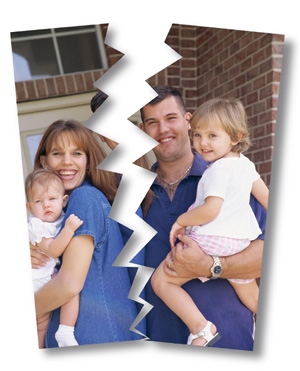Parenting: The "Good-enough" Mother
Winnicott formulated and developed the idea of the good-enough mother. The good-enough mother is a mother whose conscious and unconscious physical and emotional attunement to her baby adapts to her baby appropriately at differing stages of infancy.
Three key aspects of the environment identified by Winnicott are holding, handling and object-presenting. The mother may thus hold the child, handle it and present objects to it, whether it is herself, her breast or a separate object. The good-enough mother will do this to the general satisfaction of the child. The good-enough mother tries to provide what the infant needs, but she instinctively leaves a time lag between the demands and their satisfaction and progressively increases it. As Winnicott states: "The good-enough mother...starts off with an almost complete adaptation to her infant's needs, and as time proceeds she adapts less and less completely, gradually, according to the infant's growing ability to deal with her failure" (Winnicott, 1953). The good enough mother stands in contrast with the "perfect" mother who satisfies all the needs of the infant on the spot, thus preventing him/her from developing.
The good-enough mother's behaviour can be described as the graduated failure of adaptation. Her failure to satisfy the infant needs immediately induces the latter to compensate for the temporary deprivation by mental activity and by understanding. Thus, the infant learns to tolerate for increasingly longer periods both his ego needs and instinctual tensions.
Winnicott sees the micro-interactions between the mother and child as central to the development of the internal world. After the early stage of connection with the mother and illusions of omnipotence comes the stage of relative dependence (objective reality) where children realize their dependence and learn about loss. The mother's failure to adapt to every need of the child helps them adapt to external realities. As the infant develops, the good-enough mother, unconsciously aware of her infant's increasing ego-integration and capacity to survive, will gradually fail to be so empathic. She will unconsciously "dose" her failures to those that can be tolerated, and the infant's developing ego is strengthened, the difference between "me" and "not-me" clarifies, omnipotence is relinquished, a sense of reality begins to emerge, mother can be increasingly seen as a separate person, and the capacity for concern can develop. This way the mother helps the child to develop a healthy sense of independence. Failure in this stage may result in the formation of a False self.
The trick of the good-enough mother is to give the child a sense of loosening rather than the shock of being 'dropped'. This teaches them to predict and hence allows them to retain a sense of control. Rather than sudden transition, this letting go comes in small and digestible steps, in which a transitional object may play a significant part.
The final phase of development, to independence, is never absolute as the child is never completely isolated. The mother's role is thus first to create illusion that allows early comfort and then to create disillusion that gradually introduces the child into the social world. Winnicott recognized that the child needs to realize that the mother is neither good nor bad nor the product of illusion, but is a separate and independent entity.
Studie säger splittrade familjer skadar barnen mer
Barn som växer upp i familjer med ensamstående föräldrar är dubbelt så vanligt som sina motsvarigheter för att utveckla allvarliga psykiska sjukdomar och missbruk senare i livet, enligt en viktig ny studie.
Forskare har i åratal diskuterat huruvida barn från splittrade familjer studsar tillbaka, eller om det är större risk att barn vars föräldrar vistelse tillsammans för att utveckla allvarliga känslomässiga problem.
Studien visar att ekonomiska svårigheter kan spela en roll, men andra experter säger att forskning stöder också uppfattningen att kvaliteten på föräldraskap kan vara en faktor.

I studien används det svenska nationella register, som täcker nästan hela befolkningen och innehåller omfattande socioekonomiska och hälsoinformation.
Forskarna fann att barn med ensamstående föräldrar var dubbelt så stor risk som andra att utveckla en psykisk sjukdom som depression eller schizofreni, att ta livet av sig eller försöker begå självmord, och att utveckla ett alkohol-relaterade sjukdomar.
Flickor var tre gånger större risk att bli missbrukare om de levt med en ensam förälder, och pojkar var fyra gånger högre risk.
Hela området är mycket omdebatterad och jag tycker det är mkt intressant att läsa om med tanke på att over 50 % av föräldrarna går separata vägar. Läs hela Artikeln här.
BTW, risken att ett skilsmässobarn skiljer sig som vuxen är dubbelt så hög jämfört med barn som inte upplevt en skilsmässa. Det visar två färska undersökningar. Läs mer.
Hur det står till med barnuppfostran i dagens Sverige?
Nannyboken innhåller också många konkreta tips som underlättar vardagen. Här finns checklistor och scheman, frågor och svar på mängder av vanliga frågor och inte minst Nannysarnas supertrick!

Perfekta föräldrar finns inte
Att fa barn är en omvälvande process och man upptäcker tidigt att barnuppfostran är en svår men viktig del av vardagen. Jag tror att bli föräldrar är en av de största omvälvningarna som vuxna människor går igenom. Det tog mig några månader att komma in i mammarollen. Vår son ar idag 6 månader gammal och jag lär mig ngt nytt varje dag.
Barn kommer till världen fullständigt utlämnade och kräver av oss som föräldrar kärlek, uppmärksamhet och omtanke. Det låter självklart, men när man stupar av trötthet är det värt att påminna sig själv.
Barnuppfostran är ett omdiskuterat ämne och idag finns fler råd, uppfattningar och debatter om barnuppfostran än någonsin tidigare. Som forälder kan man lätt känna sig förvirrad om vad som ar "rätt"och "fel."
Alla barn har sina individuella behov och alla familjer har sin unika sammansättning. Men jag tror att en del saker är ändå av grundläggande betydelse för samspel och uppfostran:
• Den positiva inställningen till barnet.
• Förmågan och viljan att förmedla kärlek och glädje.
• Respekten för barnet och barnets känslor.
Uppfostran handlar om att stödja barnets utveckling. Även gränssättning, konsekvenser och rutiner måste ses i ljuset av detta.l
Visst låter det enkelt men vi vet alla att vi inte klarar att vara lika uppmärksamma hela tiden. Ibland saknas det energi, ibland räcker inte tiden till.
Det bästa ar nog att följa sin egen intuition och föregå med gott exempel. Jag tror även att det är väldigt viktigt som förälder att mitt i all barnuppfostran ta tid för dig själv och relationen. Hur ni som individer mår och er relation till varandra präglar barnet. Känner ni er tillfreds med er själva så har ni också mer att ge till ert barn.
Har du tips och idéer om barnuppfostran?
Lämna gärna en kommentar eller en fraga.
Har ny föräldrakultur gjort våra barn till mesar?
”Spring inte på trottoaren, hoppa inte två på studsmattan, gå inte så nära kanten.” Hör du dig själv? Den ständigt ängslige föräldern. Barnpsykologen Malin Bergström talar med aftonbladet om hur du kan släppa på kontrollen. Intressant artikel.
Barnuppfostran/The 5 F’s of good parenting
I decided to start off discussing the topic of good parenting with a conceptual framework my mentor taught me during Child and Adolescent Psychiatry fellowship training. I don’t know if he made it up or stole it from somewhere. And I can’t claim scientific validity. I can say it is an excellent framework that uncovers most problem of parenting.
Fond (kärleksfull): A good parent must like their child. Notice I chose the term “like” over “love”. A parent can love their child but never display that they like them. Children respond very well to the pattern of positive attention created by fondness. “You are so smart!” “Look how cute he is!” “Can you believe how strong our son is?!” Over time, all the doting (as long as it is genuine) builds a sense of well being, self esteem, and confidence in the child and his/her abilities. From an early age, children learn to strive for these moments of parental pleasure like a gambler at a slot machine. Unfortunately, fondness comes from within and it can’t be forced or pretended. My mentor used to say that fondness is the hardest tool to give a parent.
Firm (bestämd): A good parent must not allow their fondness, insecurity, anxiety, personal life, etc overcome their ability to be firm when necessary. This generally becomes important during the time of “the terrible two’s” (when kids first learn to act out aggression) and continues on into adulthood. Being firm requires being present, aware and consistent. It involves requiring and modeling good behavior during disagreements with the child. It does not include acting out one’s own parental aggression in order to subvert the child’s will.
Flexible(flexibel): A good parent must adjust with the times. Many parents confuse being “Firm” with being rigid. Parents must be ever mindful of the child’s need to explore and develop. Every parent should know basic child developmental stages. An 11 year old and a 16 year old are vastly different in their desires and abilities. The parent must have the flexibility to positively respond to the ever-changing child.
Fun(lekfull): Parents should spend time with their children that is enjoyed by both parent and child. This is true even through the teenage years. There is always some common ground to find in which both parent and child can do activities together. When problems develop, many times this is long lost or been ignored. I have parents who do 2 hours of homework with their 7 year old everyday but haven’t done something fun with them for weeks. Children are not little adults; they need to play.
Frank(uppriktig): Parents must whenever possible be open and honest with their children. It is generally a mistake to hide problems from kids. I have found that there is an appropriate way for a parent to discuss just about any problem with a child. If a parent can not figure out the appropriate way, then that is why there are therapists to help. A parent should always lean toward honesty whenever possible. It has been my experience that children (especially teenagers) are unbelievably good at sniffing out a lie or a family “secret”. When a parent is confronted with this, the parent should model frankness. It will be reciprocated... Dr.Lacy
Veckans ämne / Vad är rätt i barnuppfostran?
This week we will discuss some of the evidence and mental health findings concerning effective parenting. Most parents use their own childhood and anecdotal experiences gathered through early adulthood as a guide. Unfortunately, many parents did not grow up with a proper blue print for effective parenting and may get lost with reactive thinking. “I don’t want to do what my father/mother did to me.” Others may at times over-identify with their own childhood. “Honey, I am spanking our child because I was spanked and I turned out well.”
This week’s topic, like our last, is so broad we will not cover a large part of it. Readers of the blog will learn a bit about what researchers have shown concerning parenting and some of the ongoing controversies as well. Charlotte will add a few personal touches. Feel free to add comments, personal stories/views, or ask questions.







